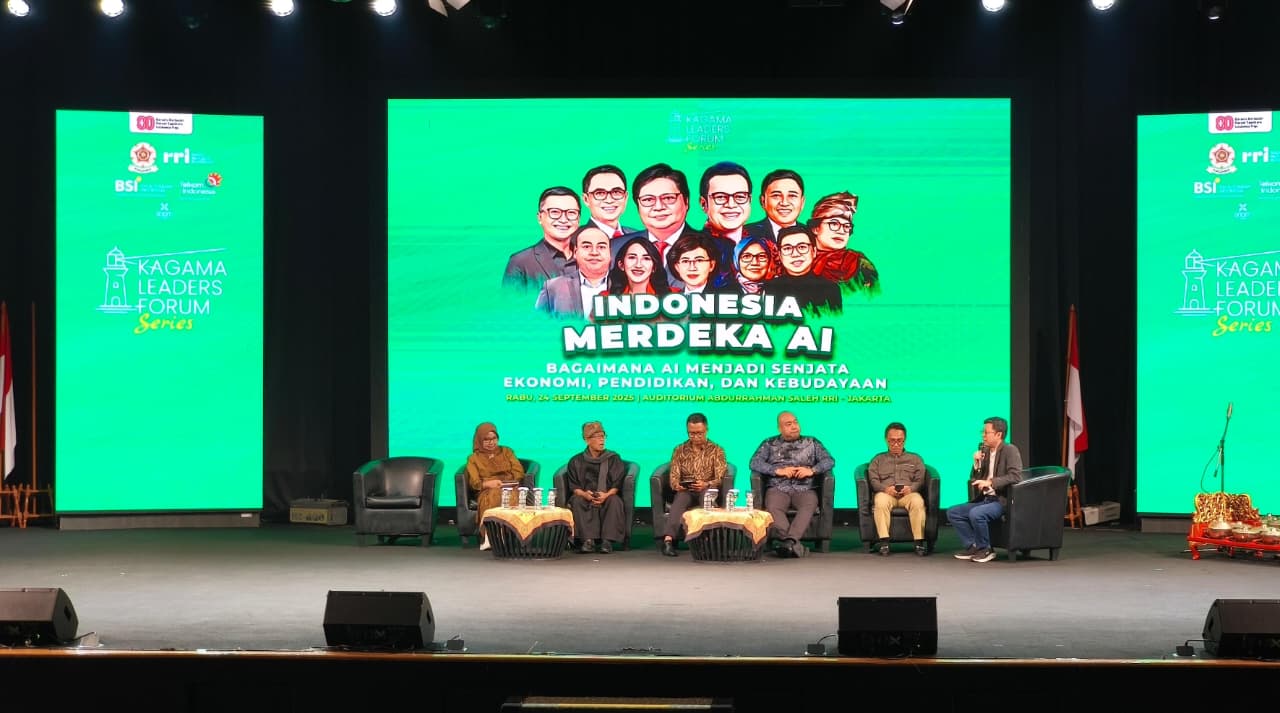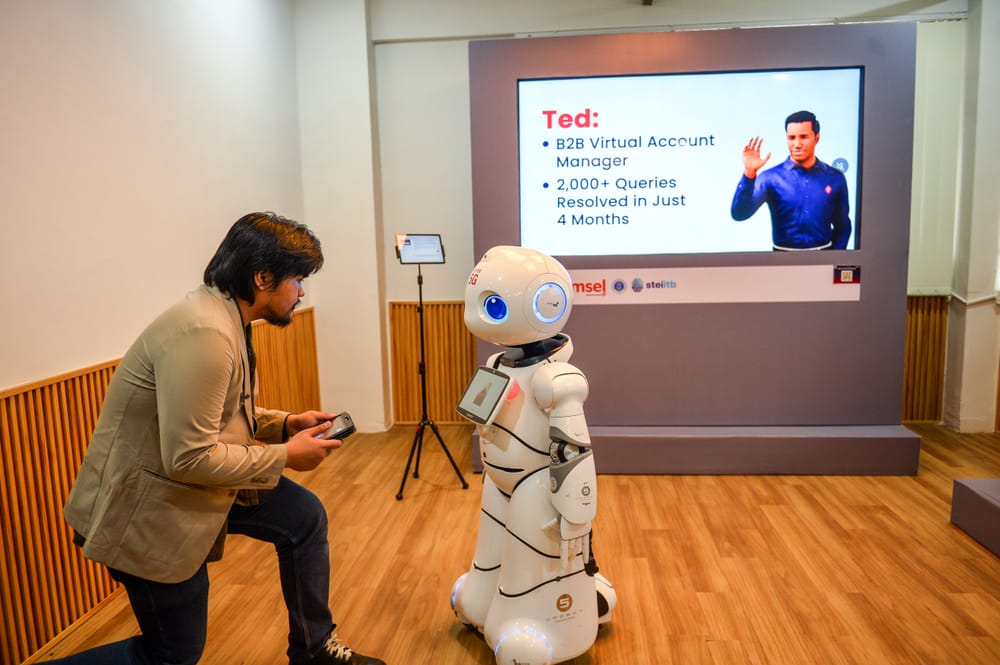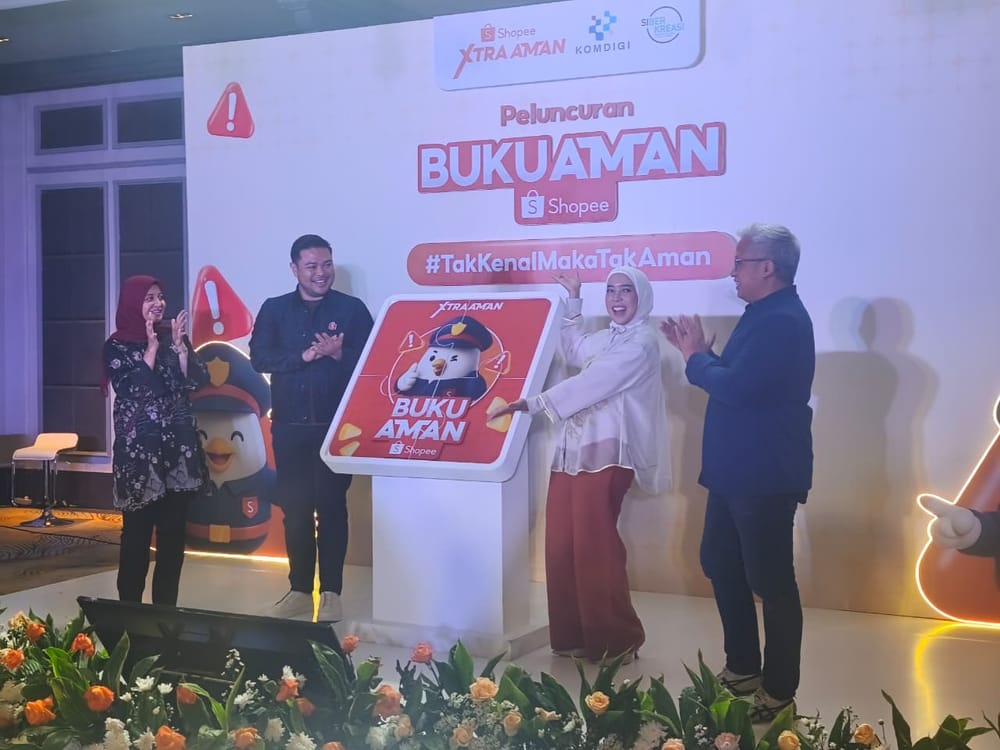The use of artificial intelligence (AI) is not just to ease work, but also has great potential to drive the country's economy.
According to the Coordinating Ministry for Economic Affairs, the economic potential of AI in ASEAN could increase GDP by USD 1 trillion by 2030, with Indonesia contributing 40% or around USD 366 billion. The company is undertaking various expansions to realize that potential.
At the Gadjah Mada University Alumni Family (Kagama) event titled"Indonesia Merdeka AI" held at RRI's Abdurrahman Saleh Auditorium, Jakarta, Wednesday (24/9/2025), Coordinating Minister for Economic Affairs Airlangga Hartarto said AI has tremendous potential to be used as a weapon in terms of strengthening Indonesia's economy and global competitiveness.
Not only does it boost the economy, the use of AI also opens up new jobs. Indeed, many jobs are currently being displaced, but the presence of AI can also open up new jobs.
Indonesia is said to need 10.7 million digital talents by 2030. Therefore, Indonesia has also collaborated with Singapore through the TECH:X Program. The digital talent exchange program between the two countries aims to strengthen and improve the competence of young talents in the digital field.
Airlangga also emphasized that this AI must be used to bring Indonesia towards the Golden Indonesia 2045.
"AI is a necessity. And AI will be a game changer - taking Indonesia from being the 16th largest country in the G20 to the 4th largest country in 2045," Airlangga said.
In 1974, Indonesia was said to have experienced the glory of the oil and gas industry, and in the following years, Indonesia was strong with the downstreaming of the palm oil industry. But today, human resources and digitalization are expected to be the next engine of growth.
"Only then can we catch up with the progress in Japan, Korea, and China. That is what will make us the top five economies in 2045. Advanced human resources are those who are able to master AI, for the sake of economic growth and the Indonesian nation," he said.
Company initiatives
Telkom Indonesia Chief of Information Technology (IT) & Digital Officer Faizal Rochmad Djoemadi said that the presence of AI as a technology can attract investors to invest and encourage the investment climate in Indonesia.
Faizal sees that in terms of investment, this AI will make investment enter Indonesia. "This is very important. Not only in telco operators, with the deployment of AI and use cases used by various governments, industries, SOEs, private sectors, UMKM, there will automatically be a need for hardware, software, data centers, and so on. This will drive investment," Faizal explained.

Faizal also highlighted the importance of developing digital talents and supporting startups that continue to relentlessly innovate solutions using AI.
"Today, many university graduates, especially children of information systems, informatics, computer systems, and so on, are making AI solutions that they even have intellectual property rights. They register and patent the algorithms they make," he said.
According to him, Indonesia does not lack innovators. Many have potential ideas or breakthroughs, but they are faced with the obstacle of not being able to touch the market, due to the absence of investors who help them develop and innovate, especially related to AI.
This condition clearly must be addressed immediately. One way, as Telkom Indonesia has done, is through investment in GPUs(graphics processing units) that can be used by young people and innovators in experimenting with building an AI ecosystem.
"We have an AI Playcourt, where our GPUs can be used by startups to conduct experiments, including in the field of AI," said Faizal. "Today our GPU is 87% occupied, so only 13% left," he continued.
In line with him, SVP Regulatory & Government Affairs PT Indosat Tbk Ajar Edi highlighted the importance of building technology infrastructure in Indonesia in encouraging the progress of digitalization and the economy.
"AI infrastructure with GPU chips exists in all countries. I think that is a critical thing. A country's sovereignty over technology is realized by the existing infrastructure in that country so that the country is sovereign and dignified," Ajar said.
Cooperation between companies is very important in the development of AI. One of the reasons is because this technology requires large investments, specialized expertise, and access to abundant data. By collaborating, companies can overcome various challenges to accelerate innovation in today's digital era.
On the same occasion, Head of Government & Regulatory Affairs IBM Indonesia Angga Airlangga as one of the panelists explained that IBM Indonesia as a company that has been present since 1937 focuses on enterprise solutions using an AI approach.
"So the ecosystem is something very important for IBM. We work together, for example with Telkom there is an MoU. Our solution is in Telkom BigBox which we have supported for use cases, that's one of the things we are developing," said Angga.
Angga also believes that the presence of AI will not replace the role of humans in various sectors, if humans use and utilize AI to help complete their work.
"According to IBM itself, AI will not replace humans, but humans who work with AI can be more productive. That is one of our guidelines and indeed we are trying to build an ecosystem," he said.
Digital talent
IBM Indonesia is also working with the Ministry of Communication and Digital (Komdigi) to develop new talents through the AI Talent Factory. Through this collaboration, IBM seeks to drive innovation and share expertise to make a real impact in creating an AI ecosystem.
"Students who become AI Talent Factory use cases that they produce are very advanced and collaboration is needed from all, which we call pentahelix," he continued.
However, establishing collaboration between companies or with the government in building this AI ecosystem is not an easy task. IBM also faces other challenges. Efforts continue to be made to realize collaboration for a developed Indonesia.
"We are working with Telkom and Komdigi, that's what we are developing," he said.
Indonesia itself has great potential in the development and utilization of AI. The adoption of AI technology in the country continues to increase significantly, driven by various factors.
Deputy Minister of Komdigi, Nezar Patria, revealed that his office has created the Indonesian Artificial Intelligence Roadmap as an effort to realize the ethical and responsible use of artificial intelligence to strengthen global competitiveness.
"Komdigi is currently focused on defining or creating Indonesia's Artificial Intelligence Roadmap. Last month, we just released a white paper draft of the Artificial Intelligence Roadmap which is currently in the process of being finalized," he explained.
In order to realize this vision and mission, Komdigi has directed a number of regulations that will be present to be able to show laws and policies that support innovation and KA technology that is human-centric, safe, and oriented towards the welfare of society.
The development of this train is directed to be in line with the national development agenda and digital transformation priorities, and is expected to be able to answer issues in the fields of food security, education, health, economy and finance, bureaucratic reform, politics, law, security, energy and environment, housing, transportation, logistics, infrastructure, arts, culture, and also the creative economy.
The Indonesian KA Roadmap was created to create an AI research and innovation collaboration ecosystem that can foster an investment climate and prepare use cases to realize national priority programs.
"We hope that this use case can answer a number of problems that arise from our nation's movement towards technological independence," said Nezar.






